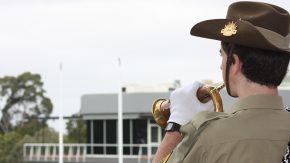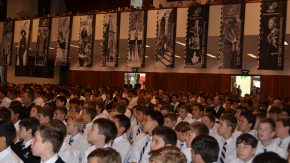First President and the First Council
A hundred and fifty years ago, in another step towards the establishment of Newington College, the Committee of Education of the Wesleyan Methodist Church appointed the Reverend John Allen Mantonas the first President of the Wesleyan Collegiate Institution.
The Committee had had a pivotal role in the movement towards the establishment of the College and it now functioned, in effect, as the governing council of the new school as it came into being. Indeed, it was not until the beginning of 1866, two and a half years after the College’s opening, that a separate Council to oversee the College was formed. Its first Chairman, the Reverend Stephen Rabone, had led the Committee of Education through the work leading up to the start of the College.
Manton’s appointment as President also represented the start of the system of ‘dual control’ of the College that continued to the end of the nineteenth century. Under this system, the President — always an ordained Minister — had overall charge of the College, including oversight of boarding, facilities, employment, domestic arrangements and the training of theological students. The ‘Head Master’ (as the title was usually shown in this period) had charge of the academic side of the school, along with sport and other student activities, subject to the overall supervision of the President.
This is why we have portraits both of Presidents (Rev John Manton, Rev Joseph Fletcher, Rev Dr William Kelynack and Rev Dr James Egan Moulton) and of Headmasters (Thomas Johnstone, George Metcalfe, Michael Howe, Joseph Coates, William Williams, Arthur Lucas and Edward Cornwall) for this period on the walls of the Prescott Hall and the Council Board Room.
It was only with the appointment of the Reverend Dr Charles Prescott as Headmaster in 1900 that the two roles were combined and the dual control system ended in practice. Technically, Prescott was also the College’s President until the Newington College Council Act 1922 (NSW) changed the basis of the College’s governance.
David Roberts
College Archivist






